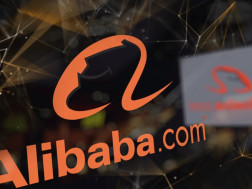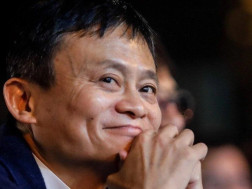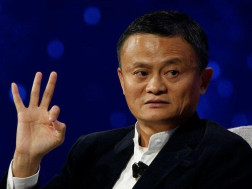One day you’re in, the other day you’re out. China’s billionaire rankings seem as stable as hydrogen. In 2017, Hui Ka Yan, founder of real estate developer China Evergrande Group, was the nation’s richest man. That throne was claimed by Alibaba Group Holding Ltd.’s Jack Ma one year later. Now, Zhong Shanshan, chairman of water bottler Nongfu Spring Co., is China’s wealthiest; in fact, he is even richer than Warren Buffett. Eye-popping billions seem to spring from all walks of life.
The swift reshuffling in part reflects structural changes in the Chinese economy. Real estate developers were riding high until late 2017, when Beijing launched a draconian corporate deleveraging campaign. That diet checked the asset expansion of the likes of Hui, who runs the world’s most indebted real estate business, and paved way for the rise of tech tycoons. Over the last three months, however, the wind shifted again. This time, Beijing is cracking down on Big Tech over antitrust. Its last-minute suspension of Ant Group Co.’s $35 billion initial public offering, for instance, cost Ma billions. Now, China is all about Big Food — where everyone from fiery baiju makers to pig farmers enjoy record sales from a windfall of discretionary consumer spending. Zhong’s dramatic rise to fame is part of that phenomenon.
But the volatility in billionaire rankings is also a sign of how fleeting wealth in China can be. Here is a hypothetical question: How many billions would Zhong have if he decided to sell his assets now? Would he still be richer than Warren Buffett? Shouldn’t that be how wealth is measured anyhow?
The water bottler magnate has a net worth of $91.5 billion, higher than Buffett’s $88.9 billion, according to the Bloomberg Billionaire Index. The bulk of Zhong’s wealth, or $74 billion, is derived from his 84% stake in Nongfu Spring, now valued at 88 times forward earnings after a 180% return since its public offering in Hong Kong last September.
How much can Zhong get if he wishes to monetize some of that stake now? It turns out, Nongfu stock is not good collateral for margin loans. Its loan-to-value ratio, according to Hong Kong-based Philip Securities Group, is only 50%. By comparison, Hong Kong tycoon Li Ka-shing, who is now well below Zhong in the rankings, could get 80% margin loans for his shares in CK Hutchison Holdings Ltd. Even Ma’s wealth is a lot more stable: Alibaba stocks can be margin-financed at 80%, too.
Banks decide the size of margin loans based on liquidity, or how fast they can sell down the shares. A stock’s loan-to-value ratio is automatically higher if it is part of a major index, such as the Hang Seng, which CK Hutchison and Alibaba belong to. Illiquid stocks, on the other hand, are worth less to the banks. Paper gains are unreliable.
Looking at Chinese billionaires’ paper wealth can therefore be misleading, because the bulk of their riches comes from their stock holdings. One may even argue Nongfu’s valuation is artificially high, because it has so little supply in the marketplace. Two-thirds of its outstanding shares are not traded because they are held by company insiders, data compiled by Bloomberg show. By the same token, Hui, now ranked as China’s 13th richest man by the Bloomberg Billionaire Index, does not really have the $25.9 billion attributed to him either: $100 worth of Evergrande shares will give you only $20 in margin loans. Most of Hui’s fortune comes from his 77% stake in Evergrande.
Banks decide the size of margin loans based on liquidity, or how fast they can sell down the shares. A stock’s loan-to-value ratio is automatically higher if it is part of a major index, such as the Hang Seng, which CK Hutchison and Alibaba belong to. Illiquid stocks, on the other hand, are worth less to the banks. Paper gains are unreliable.
Looking at Chinese billionaires’ paper wealth can therefore be misleading, because the bulk of their riches comes from their stock holdings. One may even argue Nongfu’s valuation is artificially high, because it has so little supply in the marketplace. Two-thirds of its outstanding shares are not traded because they are held by company insiders, data compiled by Bloomberg show. By the same token, Hui, now ranked as China’s 13th richest man by the Bloomberg Billionaire Index, does not really have the $25.9 billion attributed to him either: $100 worth of Evergrande shares will give you only $20 in margin loans. Most of Hui’s fortune comes from his 77% stake in Evergrande.
Private equity and venture capital funds are evaluated on whether they can exit their investment portfolios. Shouldn’t we do the same when we rank billionaires, too? China’s super-wealthy do not have enough exit routes. They still own too much of the businesses they founded. Meanwhile, Beijing’s shape-shifting political and economic priorities create riches-to-rags stories overnight. Much as China would like to boast, it does not have a billionaire richer than Buffett.
Source: Bloomberg
















